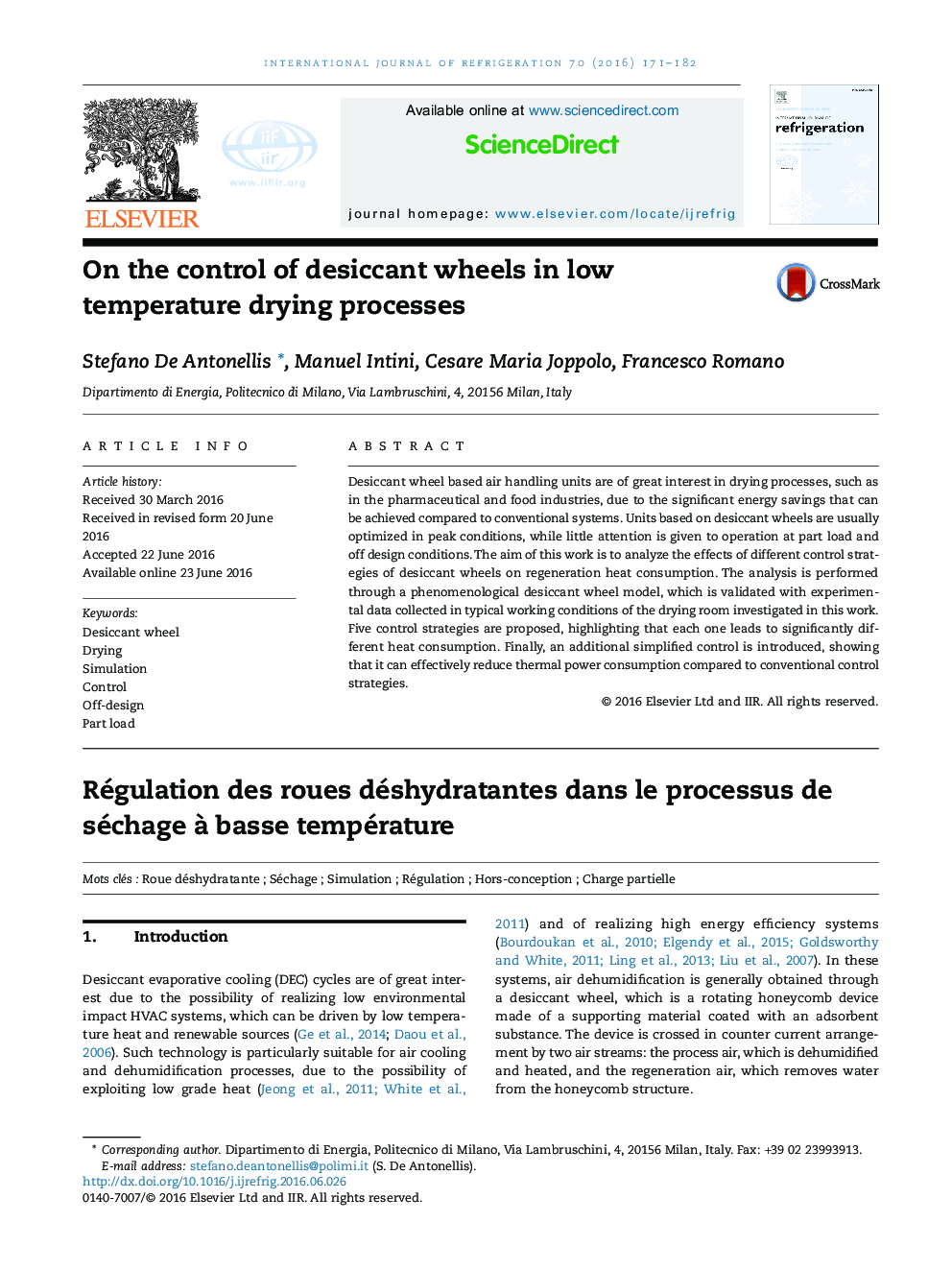| Article ID | Journal | Published Year | Pages | File Type |
|---|---|---|---|---|
| 7175480 | International Journal of Refrigeration | 2016 | 12 Pages |
Abstract
Desiccant wheel based air handling units are of great interest in drying processes, such as in the pharmaceutical and food industries, due to the significant energy savings that can be achieved compared to conventional systems. Units based on desiccant wheels are usually optimized in peak conditions, while little attention is given to operation at part load and off design conditions. The aim of this work is to analyze the effects of different control strategies of desiccant wheels on regeneration heat consumption. The analysis is performed through a phenomenological desiccant wheel model, which is validated with experimental data collected in typical working conditions of the drying room investigated in this work. Five control strategies are proposed, highlighting that each one leads to significantly different heat consumption. Finally, an additional simplified control is introduced, showing that it can effectively reduce thermal power consumption compared to conventional control strategies.
Keywords
Related Topics
Physical Sciences and Engineering
Engineering
Mechanical Engineering
Authors
Stefano De Antonellis, Manuel Intini, Cesare Maria Joppolo, Francesco Romano,
